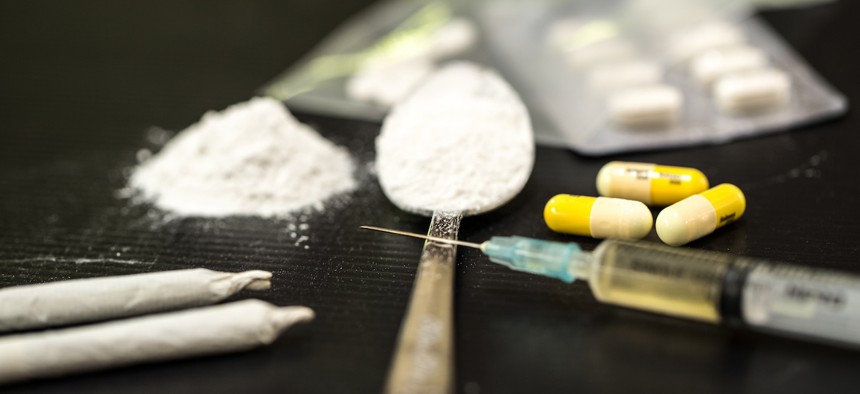
krisanapong detraphiphat/Getty Images
Honesty is always the best policy, but it isn’t a silver bullet for security clearances
COMMENTARY | Candor isn’t helping the growing number of security clearance holders and applicants with drug use issues.
In 2023, security clearance denials based on the drug use adjudicative guideline increased by 36% – by far the largest uptick across any guideline as reported by the Defense Office of Hearings and Appeals. Based on denials and revocations already released for the year 2024, that looks to be a trendline that will continue.
Of appeals cases released so far, 13 of the 58 involved illegal drug use. It’s worth noting in this case that “illegal” often means recreational drug use in states that have legalized it. While the cornucopia of drug options are increasing, drug users are often surprised to learn that what was legal in their state is far from legal at the federal level, and can have serious career repercussions.
There are several types of security clearance drug users who present themselves. Some are ignorant to the disparity between federal and state laws and don’t realize their drug use will be an issue. Others are aware, and defiant – noting they will not stop using drugs, and yet for some reason decide to go through with the security clearance application process and test their chances. A third group have given up drugs recently – but unfortunately, often not recent enough for the government to consider it a change in behavior.
This is where the government’s own guidance can be confusing.
A 2021 memorandum from the Office of the Director of National Intelligence attempted to make it slightly easier for previous drug users to work in national security. The memo stated marijuana use itself would not be disqualifying and would be evaluated on the circumstances and future intent. That’s left some applicants assuming that simply vowing to abstain in the future will be enough to mitigate past drug use. But many agencies consider the frequency of use and the number of drugs used – and all of the vows and negative drug tests won’t generate a favorable determination.
One recent case involved an applicant who admitted to using marijuana more than 1,000 times, throughout college and in his first year working for a defense contractor. In addition to marijuana, the applicant also used cocaine, hallucinogenic mushrooms, LSD, Adderall, Vyvanse, Tramadol, Vicodin, and Xanax – and listed all of these substances on his security clearance application.
Honesty is always the best policy but that doesn’t make it a silver bullet. Despite negative drug tests and a year of abstinence, the government determined the use was too recent, and the break in daily drug use too short to be considered a new pattern of behavior. The security clearance was denied, and he’ll either have to pursue uncleared work, or a different career path, for at least a year.
In contrast, there are also a growing number of applicants who simply refuse to give up their drug use, and are incredulous that the government would ask them to. From another recent DOHA appeal, the applicant stated:
“[M]y use of recreational drugs on my personal time in no way reflects upon my trustworthiness as a keeper of national secrets. I do not plan to change my lifestyle because that would be absurd, and directly contradictory to the first sentence of this statement. If the DOD wants a dog who has no personal principles, they can find one elsewhere.”
Congress continues to push legislation that attempts to make it easier to get a job despite recent drug use, but the hurdle of getting past recent drug use on the path to a national security career remains high. Past drug use cases are growing more complex, and even with congressional action to decriminalize drugs, current policies and the Federal Drug Free Workplace Act of 1988 would also likely need to change.
There are increasingly more states where marijuana use is “legal,” but without federal law changes, security clearance applicants are held to the standard of whether or not their drug use was illegal at the federal level. So far, the security clearance adjudicative process has not necessarily considered the state where drugs are consumed as a universally mitigating issue but is much more interested in pattern of behavior and if the applicant was a drug “user.” Use of drugs over a course of months constituting a pattern of behavior seems to still be a disqualifying factor – even where the applicant gives up drugs. Barring a change in federal law, while there are exceptions to the rule, one year of abstinence from drug use continues to be the best recommendation if you want a more seamless path into a national security career.
Societal norms and even laws around drugs may be changing. But the security clearance process around it isn’t. The uptick in clearance denials and revocations demonstrate that anyone interested in working for the federal government – whether directly for the government or as a contractor – should carefully consider prior drug use before they apply. Abstinence isn’t just the best policy, it’s the only one, and it will take a number of legal and policy changes before the federal workforce becomes a drug friendly – or even tolerant – one.






